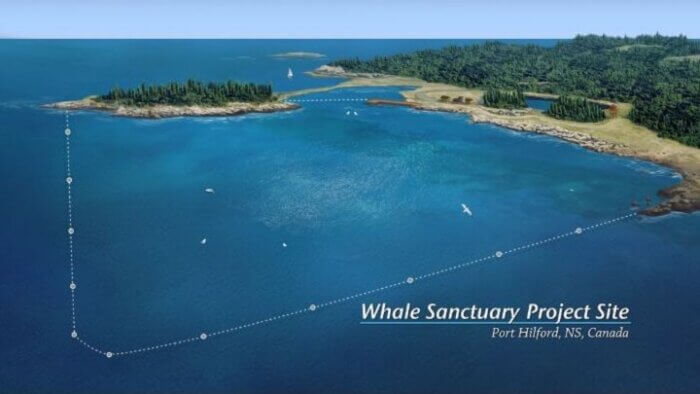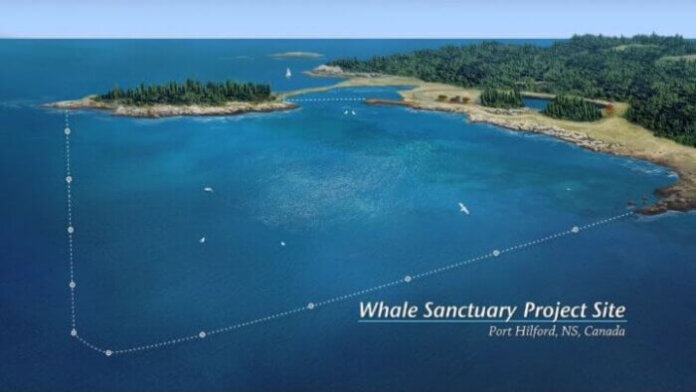By Joanne Jordan, Local Journalism Initiative Reporter
Guysborough Journal
PORT HILFORD: While there may be no visible signs, the Whale Sanctuary Project (WSP) in Port Hilford remains under development, according to its chief executive officer Charles Vinick.
“You can’t see tangible progress on site, but we are working in the background to move this project forward with our community partners,” Vinick said in a telephone interview with The Journal last week.
Meanwhile, he confirmed, “a number of agencies are all collaborating to try to work together, including levels of government and departments, animal welfare groups, as well as Marineland,” to find a home for 30 whales that remain in the now-closed aquatic theme park in Niagara Falls, Ont.
With the passing of Bill S-203 in June 2019 – the Ending the Captivity of Whales and Dolphins Act – keeping marine animals in captivity for entertainment and breeding purposes in Canada is no longer permitted. Since then, 18 whales – 17 belugas and one orca – have died at the Marineland facility, according to media reports citing Ontario government records.
Animal welfare advocates – notably, World Animal Protection Canada, a non-profit charity – has called on the federal government to convene meetings with Marineland, zoo and aquarium leaders, and other stakeholders to prioritize the welfare of the park’s whales.
According to marine experts, the whales – born in captivity – would not survive if released into the wild, as they lack the survival skills needed to recognize predators and secure food.
The remaining options appear to be relinquishing the whales to the Ontario government or transferring them to a marine sanctuary, such as the one being developed in Port Hilford.
Marineland’s plan to sell some of the whales was rejected earlier this month when federal Fisheries and Oceans Minister Joanne Thompson denied permits for their export to Chimelong Ocean Kingdom in China. The park has since stated that it lacks the financial resources to continue feeding and caring for the animals and has reportedly considered euthanasia if funding is not secured.
Animal activists have expressed concern. According to a recent report in The Independent, Camille Labchuk, director of Toronto- based Animal Justice, stated on social media, “Marineland is claiming poverty while sitting on half a billion (maybe more) in property value,” and called for greater transparency regarding the park’s finances.
Other wildlife advocates have echoed this sentiment, calling on the Ontario government to intervene and seek reimbursement through the potential sale of Marineland’s property.
Advocates argue the situation underscores the need for sanctuaries – such as the one planned for Port Hilford – to provide long-term care for captive marine mammals in a naturalistic environment with safety, food and medical support.
In a statement posted to the WSP’s website earlier this month, Vinick said, “The belugas have entertained millions of people and earned millions of dollars for Marineland’s owners… These whales deserve a dignified, supportive and compassionate retirement.”
In development for five years, the estimated $20 million WSP – funded privately and through donations – has completed environmental reviews, risk mitigation plans, and received support from Nova Scotia’s Mi’kmaw Nations and several local stakeholders.
The proposed location, which includes a Crown lease for 81 hectares of land and water and is adjacent to five private landowners, requires unanimous consent from all neighbouring property holders. One landowner has not yet signed the agreement.


